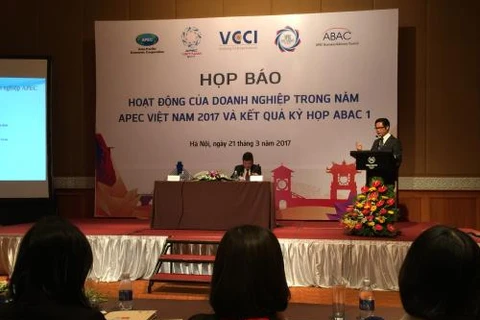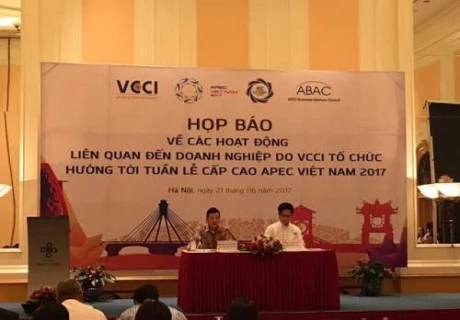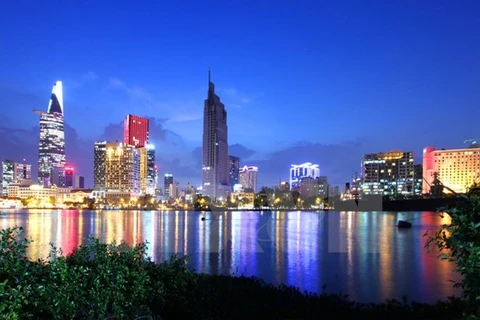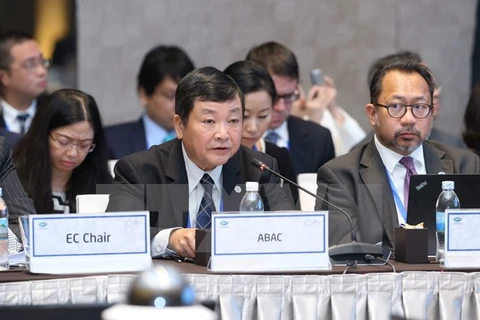Toronto (VNA) – Participants in the third meeting of the APEC Business Advisory Council (ABAC III) took part in various roundtable discussions and symposiums on July 25, the event’s second working day, focusing on finance and business development in the era of innovation and digitalisation.
Delegations from the 21 APEC economies, including representatives of enterprises, organisations and institutions, shared experience and put forth numerous proposals.
Most of them stressed the role of financial resources, public-private partnership and application of digital technologies in supporting business development, promoting innovation, creativity and trade in goods and services, and investing in long-term infrastructure projects in the future.
Speaking at the APEC-Canada Growing Business Partnership Symposium (ABACx), ABAC Vietnam Chairman Hoang Van Dung emphasised the massive impacts of the Fourth Industrial Revolution, which will generate opportunities for businesses, particularly micro, small- and medium-sized enterprises (MSMEs), to engage in global trade, increase their competitiveness, innovate and access markets. The Industry 4.0 will also help them optimise comparative advantages, deal with trade barriers and produce goods at lower expenses.
However, there are obstacles hampering MSMEs’ access to those chances, he noted.
Therefore, ABAC calls for the building of a progressive e-commerce policy framework across the APEC region to boost businesses’ access to and application of digital technologies and help them gain comprehensive access to databases in the region and the world.
Dung added ABAC also wants to set up programmes on building MSMEs’ online and offline e-commerce capacity.
At a roundtable discussion on expanding trans-Pacific infrastructure investment opportunities, participants said many governments are facing financial problems while the infrastructure investment demand is forecast to rise to about 5 trillion USD each year from now to 2030. The Asian Development Bank (ADB) estimates this demand in Asia alone amounts to about 1.7 trillion USD per year. Hence, the private sector will hold an increasing role, helping to meet the infrastructure investment demand.
However, to make use of that opportunity, countries, especially the developing ones, will have to handle an array of challenges relating to the public sector’s capacity, the bond and insurance markets, investment climate and the ability to pay for infrastructure projects.
Donald W. Campbell, Co-Chair of the Pacific Economic Cooperation Council, said the promotion of long-term infrastructure investment projects through cooperation and creativity is necessary to facilitate the flow of investment capital. It needs the participation of governments, multilateral development banks, private investors and financial institutions.
ABAC III is taking place in Canada from July 24 to 28. It is the last meeting before the member economies submit important recommendations to APEC leaders at the APEC Economic Leaders’ Meeting, slated for this November in Vietnam.-VNA
VNA

























